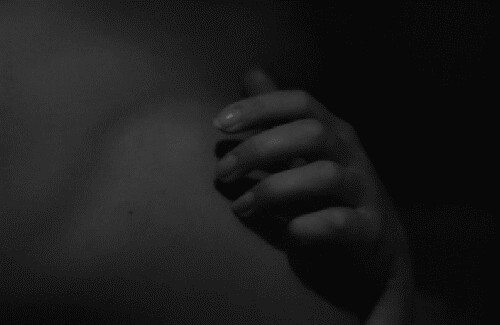Love.
Love stories on films are meant to make us feel a sense of sweetness within. Be it through chance encounters, tender reconciliations or mutual affections that extend through time, romance films are those extra sugar cubes that sweeten the occasional bitterness in our lives. But what if a film suddenly enters our collective consciousness, dare proclaiming that love, after all, is not really all about flowers and chocolates but, in its very essence, all about pain? "Amour", a most devastating film by Michael Haneke, may just be that very film, and trust me, if this won't add a much-needed depth to your outlook on love, then I believe nothing will.
Although I sure do think, without a single doubt in my mind, that "Amour" is one of the absolute best films of the year (if not the very best), the film's style and execution, especially in its lack of musical scoring and often stagnant shots, may surely off-put some viewers. But for some who consider silence and subtlety as two of the most powerful tools in conveying emotions and whatnot, then "Amour" will surely impress.
With two French screen legends in the form of Jean-Louis Trintignant and Emmanuelle Riva (with Isabelle Huppert on the side) joining emotional forces to tell us a tale that may very well be the most truthful love story there is, "Amour" has managed to be unforgettably tender and powerfully disquieting at the same time. With no formal narrative to guide the film save for the elderly couple's (played by Trintignant and Riva) confined everyday lives, "Amour" is that rare kind of film that gets its strength not from the plot basics but from the very essence of the characters that inhabit it, and we only have the aforementioned screen legends to thank for it.
Trintignant, who I have first set my eyes upon (and loved) in Bernardo Bertolucci's "The Conformist", is honest, understated and very romantically proud as Georges, a retired music teacher who is suddenly faced with the biggest challenge of love when Anne (Riva), her wife, was suddenly rendered half-paralyzed by a surgery gone wrong.
As naturally effortless as he is overwhelmingly moving, Trintignant's Georges goes through the debilitating burden of taking care of his ill-stricken spouse with a mountainous sense of dignity and individualism. Although Haneke has molded the character with an inscrutable sense of pride, we are nevertheless drawn to painfully empathize with his situation because it's all too real and also because, at one point or another, we'll just be like him. I, for one, slightly know how he feels. My great grandmother, in her dying days, was exactly just like Anne, and I had the privilege to take care of her through two sleepless nights.
This therefore brings me to Emmanuelle Riva's unbelievably realistic performance as Georges' better half. Yes, Emmanuelle Riva, the very same, conflicted woman in "Hiroshima Mon Amour" whose beauty contrasts the said film's tumultuous romantic themes, now bedridden and merely speaking in tongues. As much as "Amour" is an honest evocation of the final frontiers of love, it's also a film that's knee-deep in demythologization, specifically in how Michael Haneke has reduced an immortal screen beauty like Emmanuelle Riva into nothing more than an old, dying woman pitifully confined within the four corners of a reclining bed. Riva's portrayal of Anne, for me, is not really a performance per se but more a bitter confrontation of both reality and mortality, and it's just quite stunning to behold.
"Amour", Michael Haneke's most personal film (the events in "Amour" is based on his first-hand experiences of dealing with his disease-stricken aunt) and may also be the most truthful one in relation to who he really is as a filmmaker, is a clear-cut masterpiece. Once known for his violently polarizing films, Haneke has now made a film so romantically powerful that it makes you forget that the film, after all, stars two elderly people.
Admittedly, there will come a point in our lives where we'll go all apprehensive about growing old and whether or not the hands we're holding on right now, as the best years of our lives slowly fade away, will still hold on tight. "Amour", a film that proves unto me that there will always be beauty in subtlety, reassures me that, yes, they definitely will. Faith in love: quite restored.
FINAL RATING




